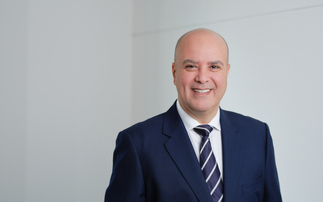Coping with the loss of a loved-one is difficult enough without having to deal with financial burdens that remain. Peter Carvill explores which types of lifestage cover are most appropriate in the event of death
Early contender for observation of the year, heard in a comedy club in Kilburn, North London: "The most depressing statistic about marriage is not that one in three end in divorce but that the other two end in death."
And, apart from Romeo and Juliet or Bonnie and Clyde, it is rare for both partners to die at the same time. Not only that but when death occurs in real life, unlike those fictional romantic pairings, there are hefty financial consequences for the survivor in monthly bills and outstanding debts.
Gerry Warner, protection development manager at Zurich, offers a concise summation of the issue: "You hope people have joint life plans in place so when one dies there is money there for the survivor to help with funeral costs, lifestyle and to get them through the initial financial complications."
The most significant bill that needs to be paid is any mortgage on property owned by the deceased, particularly if the family of loved ones are still living there. Along with being a roof over the heads of the surviving family, it is normally the biggest purchase a person makes in their lifetime, and is therefore the largest debt carried by the average household. According to debt charity Credit Action, the average outstanding mortgage is £102,554. That is across the 11.8 million households that have taken one out. And despite the current, and almost certain future decline in house prices, the cost of the average UK home (as of April this year) was £218,875. This means that everybody with a mortgage, regardless of whether they have dependants or not, should have some form of protection or other insurance in place in case they fall ill, or even die.
Debt hell
And a mortgage is not the only obligation that needs to be taken care of. Credit Action also calculates that, as a result of the UK's love affair with consumerism, the average debt held by British consumers across credit cards, finance deals, overdrafts and unsecured personal loans had risen to £4,900 by the end of May this year. If that is not depressing enough, Credit Action puts the debt of the average UK graduate leaving university at a little under £12,500.
Post-death, costs still accumulate until the deceased is finally laid to rest. Research published by Axa in 2007 put the average cost of a burial at £2,400. Factor in all the additional costs of death and that figure rises sharply to nearly £6,000.
The expectations customers have of insurers in the event of bereavement should be obvious but still need repeating - they need sensitivity coupled with a quick payout. Two of those companies that offer support services are Bright Grey and Zurich. The former include the Helping Hand service in all their products, and what it is essentially a suite of support initiatives including helplines that are accessible at any time and professional, independent advice from healthcare experts. The good thing about the service, according to Dale Tranter, protection research manager at Sesame, is it kicks in immediately in the event of a sudden death or the diagnosis of a critical or terminal illness.
Comforting shoulder
Warner outlines the proposition that Zurich offers: "We will give quick advice on things you need to do like registering the death or a little bit of counselling. That's the kind of thing you'll be looking for. I've heard of things in the market where one company would automatically write to a number of different parties to explain the death."
One thing unheard of in the market is protection for spouses taking time off to grieve. Is a policy which pays out an income in the event of the policyholder experiencing a sudden death a practical idea?
Not according to Andy Couchman, director at consultants Bank House Communications: "I don't know of a policy that benefits you if there is a death in the family. The closest is travel insurance where, if you are abroad and a family member dies, policies will often pay you to come home and deal with that situation. Apart from that, there is no policy that can be taken out to benefit you if you are bereaved. It would be a hard one to judge and wouldn't be practical."
If such a product is unfeasible, there are still ways for advisers to reduce the strain on relatives. Chiefly, advisers should look at writing policies in trust so they pay out to surviving relatives instead of being delayed as courts assign probate.
Tranter outlines the fact that bereaved family members do not want to experience excessive hassle or administration with their insurance policies at the most difficult time of their life, and writing a policy in trust goes some way to reduce that pressure. In fact, good IFAs should not have to think about or debate whether to do this. And this, says Tranter, is where advised clients fare better than unadvised. "If a policy has been written in trust, it pays dividends at claims stage; you are not in a situation spending months going through probate looking for money like you would if you'd bought a cheap policy off the internet."
He adds: "I think for someone who's just lost someone, in the short term they need help with getting the policies to pay out and, going through and converting these odd-looking pieces of paper into money."
Probate, the system by which authority is given to a person or persons to administer a deceased person's estate can become unbelievably complex, especially in the event of large estates or fractured family relationships. According to Couchman, that difficulty can easily be circumvented: "Unless the policy was written in trust you have to go through the legal system before you can get your hands on the money. It's one of the reasons why writing it in trust makes sense. Then the insurance company needs the death certificate and as long as there is no non-disclosure, they then distribute the money to those in the trust. That can be done simply and easily. If you don't have a trust, it becomes part of the deceased's estate; you have to go through probate to prove you had the right to the money. And that process can take months or, in extreme cases, years."
He adds: "Selling a policy in trust is something most advisers should do but don't. A good adviser will look at the issue of trust and recommend that one is done. But if you buy direct, then it's rare you get advice as to what to do. One of the reasons why advisers don't set it up in trust is because it is additional paperwork and it can delay the process."
An Ageing concern
As people get older, their needs change. Warner outlines how clients' protection needs can change over two decades. For a couple in their 30s, he says, it is likely that one of them would remarry in the event that the other dies. Therefore, he would recommend term assurance (TA) with some critical illness and income protection. Once they get into their 50s and 60s however, those clients should look at a whole-of-life policy when it comes to protection.
Most importantly, does someone in their sixth decade even need life cover? Gerry Warner thinks they may not: "Assuming they're free of debt. I can't see a need for TA at that point although there's no harm in having cover there. They may decide to do something around the mortgage. If there is life cover, she may have to continue paying the mortgage in which case some life cover until the end of the term would be sensible although the older they are, the more expensive the cover becomes."
But, at the end of the day, there is still the issue of making sure clients have some type of cover in place. With the much talked-about protection gap still showing no sign of closing, it is a simple wish that seems no closer to being fulfilled.











